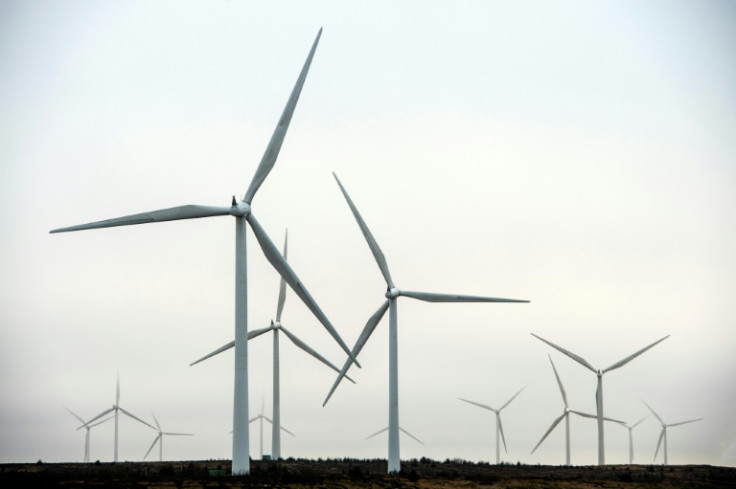UK Lagging In Switch To Green Energy, Study Warns

The UK risks being left behind in the production of "green" electricity, despite having once being considered a leader in the energy transition, according to a new study.
"Of the world's largest eight economies, the UK is forecast to have the slowest growth in low-carbon electricity generation between now and 2030," said Oxford Economics.
The analysts said in a report for industry organisation Energy UK that UK growth in low-carbon electricity output in that time would be 2.9 percent, lagging France at 3.1 percent and Japan at 3.2 percent.
Italy was predicted to grow at 5.2 percent, Germany at 5.8 percent and Spain 6.0 percent, with the top three United States (6.4 percent), China (7.2 percent) and India (10.6 percent).
The study attributed the slow-down to "low levels of expected investment" as a "significant factor" in the gloomy forecast.
The weakened global investment climate has hit public- and private-sector funding of the move away from fossil fuels to renewable technologies, it added.
But Emma Pinchbeck, chief executive of Energy UK, said international competition such as that from the US Inflation Reduction Act had also contributed.
The IRA, passed last year, pledged $370 billion for the energy transition, including the manufacture of batteries for electric cars and solar panels.
For its part, the European Union has stepped up its own tax reduction measures for investment in zero-carbon technologies.
"Given the current incentive schemes around the world, which are often much more generous than the UK, there is a risk that investment in green energy infrastructure will be pulled from the UK to countries with more attractive regimes," Oxford Economics said.
Low-carbon energy is a high-growth sector and the Office for National Statistics estimated that the sector generated GBP54.4 billion in turnover and employed nearly 250,000 people in 2021.
But the study warned: "Unless the government ensures investment in the UK is attractive, the 480,000 jobs that a net-zero transition is estimated to support by 2030 will not materialise."
In June, the government's own advisory body on tackling climate change voiced concern at the slow pace of the transition -- and warned that time was running out to meet its goals.
The Climate Change Committee called for bolder delivery and to prioritise cutting emissions as quickly as possible.
Energy security has increasingly become a major issue in the UK, particularly since Russia's invasion of Ukraine last year.
That and political opposition towards decarbonising the economy has caused uncertainty about the government's early commitment to reach net-zero emissions by 2050.
Just two years ago, when the UK hosted the COP26 climate conference, prime minister Boris Johnson pledged to turn the country into the Saudi Arabia of wind power.
He also set out ambitious targets including a ban on the sale of new petrol and diesel vehicles from the start of the next decade.
But his successor, Rishi Sunak, has since promised "hundreds" of new oil and gas exploration licences in the North Sea, enraging environmental campaigners.
In a further blow, Swedish electricity group Vattenfall last month halted a major new offshore wind project off the UK coast because of spiralling costs.

© Copyright AFP 2024. All rights reserved.





















